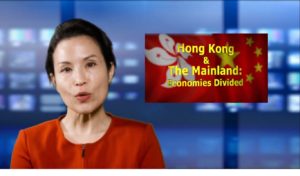
Former US president Trump tried to get US companies to return from China, but reshoring has been marginal compared to other logistic disruptions, says financial analyst Sara Hsu in an interview with the China Business Review. “The focus has shifted away from reshoring to rightshoring,” she adds.
The China Business Review:
CBR: Many have said that uncertainty is the new normal. How does a company go about de-risking its supply chain to account for the unknown?
Dr. Hsu: There are several actions companies can take to de-risk their Chinese supply chains. The first is to map their supply chains across tiers. This will help firms to understand the extent to which they are dependent on particular suppliers. More firms are doing this now in order to prevent bottlenecks. The second action that companies can take is digitizing the supply chain. This can improve data collection and end-to-end visibility by tracking raw materials to the finished product, as well as vehicles that transport the goods. Digitization can be used throughout a variety of processes, including inventory management, finance, logistics, operations, quality control, and sales. The third is to model risk assessment under different scenarios in order to identify vulnerabilities and potential risks. This can help firms to prepare for the worst-case scenario, which after COVID-19, seems more like a possibility than in the past. Addressing potential risks allows companies to remain agile even during external disruptions. Finally, US firms may attempt to diversify outside of China. Having the ability to move production to another location if needed can improve supply chain resilience.
CBR: Supply chain shifts away from China have been very a slow creep rather than a mass exodus, with most companies not planning to leave any time soon. Do you see reshoring initiatives accelerating, slowing down, or continuing gradually in the future?
Dr. Hsu: I don’t think full reshoring is a serious option for many US multinationals due to generally higher labor costs. However, I think companies will diversify outside of China to become more agile in their supply chain management and reduce the possibility of disruptions. Some firms have already diversified to Vietnam, Thailand, Malaysia, and Mexico. Vietnam is particularly popular as another supply chain destination due to its low labor costs, while Thailand has improved its ease of doing business, streamlining the process for obtaining construction permits and improving minority investor protection. Malaysia has a strong legal system and well-developed infrastructure. Mexico benefits from its close proximity to the United States and “trusted partner” status for customs. Generally, especially after the pandemic, the focus has shifted away from reshoring to rightshoring, which focuses on placing production in locations that provide better efficiency and lower costs. This means that some critical processes may remain in the United States while others are outsourced to other countries. Rightshoring is leading to lower inventory costs as well as, in some cases, better intellectual property protection. This trend also produces lower lead times, which can help firms address the increasing demand for rapid product fulfillment.
Sara Hsu is a speaker at the China Speakers Bureau. Do you need her at your (online) meeting or conference? Do get in touch or fill in our speakers’ request form.
Are you looking for more experts on the ongoing trade war at the China Speakers Bureau? Do check out this list.
No comments:
Post a Comment